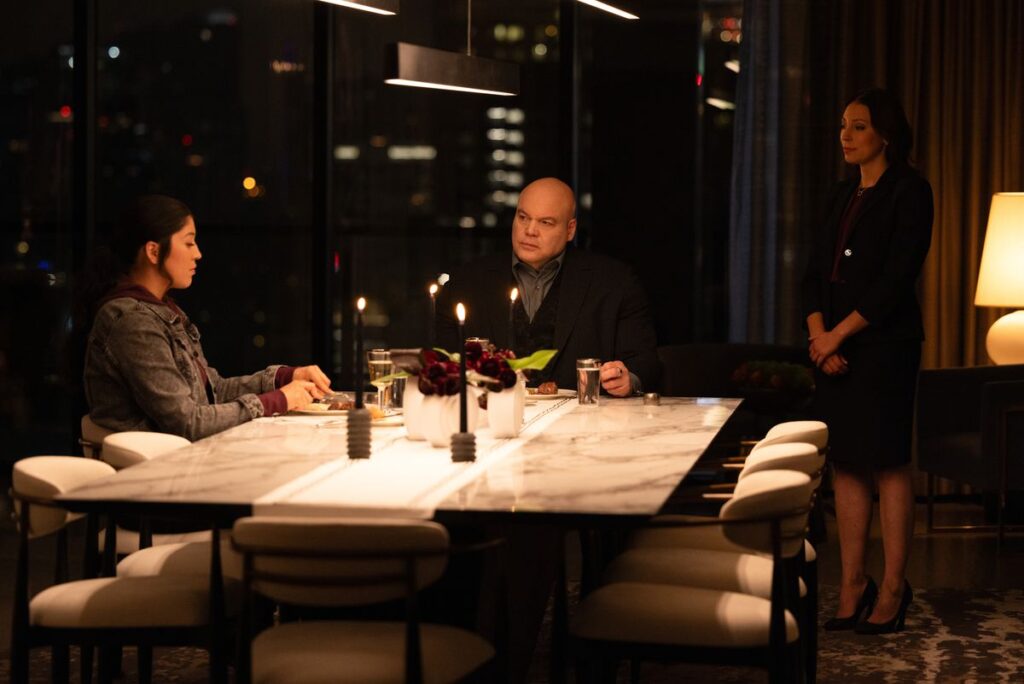Echo, the latest chapter in the Marvel Cinematic Universe, is probably going to fly under a lot of people’s radar. The urgency of the interconnected superhero setting has ebbed as Marvel Studios and Warner Bros. retool their offerings, and that goes double for a show that’s spinning off a minor character from a two-year-old miniseries into a five-episode miniseries on Hulu and Disney Plus, and making teases about another less-than-imminent show.
Which is a pity, because when you look beyond Echo’s flaws, it’s doing exactly the kind of thing that the current MCU struggles with, the kind of thing that got everybody glued to superhero screens in the first place; Echo is just trying to be a story about Echo.
Photo: Chuck Zlotnick/Marvel Studios
Echo may be slow in parts, its supernatural elements deserved some more time, and a rushed denouement did it no favors, but what’s good about the show is exactly what’s good about superhero stories. The true climax of the series is locked in Maya’s interior realizations, her reforging bonds broken in the past, and her discovering the community and cultural legacy that she’s both embraced by and beholden to. She’s not solving a problem simply because she was there at the time, but rather one that’s inextricably linked to her. In order to solve it, she has to fix herself. When the show is slow, it’s to make sure the audience knows what’s going on behind Maya’s taciturn face, its flawed elements are still in service of her emotional progression, not a twisty plot. It may not always pay off, but at least it’s not ending in CGI soup.
At the beginning of the story, Maya Lopez is lost, and at the end, she’s found, and head writers Marion Dayre Amy Rardin allow this to be its biggest priority. This sounds simple, even trite, but it’s this deprioritization of basic character work that has made phase 5 of the MCU feel so forgettable; that has taken all the spice out of the CGI soup.
Marvel Comics’ claim to fame, perpetually repeated as Stan Lee and company’s biggest revolution to the superhero genre, was that when you read a Marvel story, the point of the characters wasn’t their superpowers, but the very personal reasons why they use their power, and what for. “With great power comes great responsibility,” “to protect a world that hates and fears them,” because “good isn’t a thing you are, it’s a thing you do.” This infamous Marvel character construction put Spider-Man, Daredevil, the X-Men, and all the rest indelibly into the pop cultural fundament.
And it’s something the MCU doesn’t do very much anymore, though it’s a formula that has paid out huge dividends for the franchise even in its recent fallow years. WandaVision was a character study, right up until it succumbed to setting up for the next multiverse-y Doctor Strange movie. Loki was strongest when it forced him to confront his own nature, not an ever-changing set of time travel rules. Ms. Marvel was delightful and Guardians of the Galaxy Vol. 3, an ensemble flick that nevertheless made time for each of its leads to grow a little or a lot, was a hit.
And the shows that most inspired Echo and its “Marvel Spotlight” designation, Netflix’s Daredevil, Jessica Jones, and Luke Cage were, in their best seasons, close character studies about people confronting their pasts. They had be. There were no dangling plotlines from a movie, familiar film characters on the small screen, or a promises that this would all tie into where the franchise was going next — just a superhero character and their origin story.
Maybe the folks behind the MCU are too wrapped up in the macro of the multiverse to prioritize small-scale character problems. Maybe it’s too easy to grab a set of previously introduced superheroes and simply bounce them off a new villain like Kang or Flag Smasher. Maybe screenwriters took the criticism of samey origin stories too hard. But for whatever reason, Echo, when it rises above its flaws, is a throwback to an earlier, more reliably compelling MCU vibe — and not just because Daredevil shows up in it.

